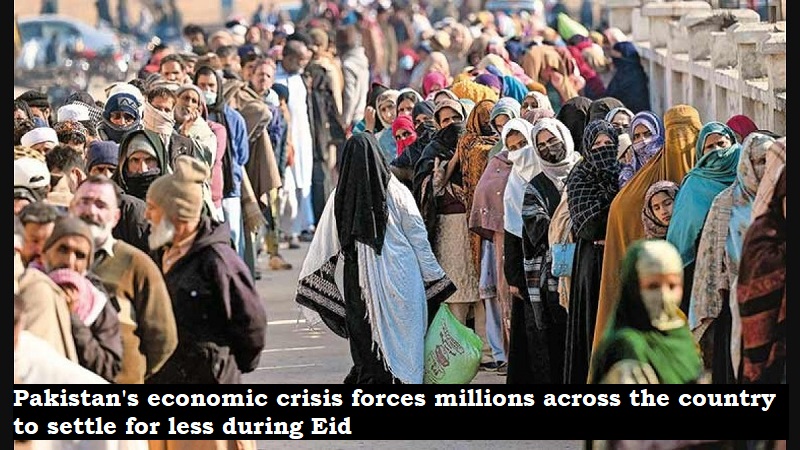
Pakistan’s economic crisis has resulted in millions of people having to settle for less during Eid, as retail sales have experienced a sharp decline in the lead-up to the festival, according to top retailers in the country. Pakistan is currently facing one of its worst economic crises in recent history, and has less than a month’s worth of foreign exchange reserves. Despite being a neighbour to China and India, the world’s second and fifth largest economies respectively, Pakistan is awaiting a $1.1 billion bailout package from the International Monetary Fund (IMF), which has been delayed since November last year due to Pakistan’s inconsistent fiscal policy adjustments, which are a condition for receiving the bailout.
Consumer price inflation in Pakistan rose to a record 35.37% in March compared to the previous year. At least 16 people have been killed in stampedes for food aid during Ramadan.
‘There has been a 20% reduction in sales across all categories except women’s clothing,’ said Tariq Mehboob, Chairman of the Chain Store Association Pakistan (CAP) and CEO of Royal Tag, a men’s clothing brand, as quoted by Reuters.
Pakistanis are currently facing depreciating currency, reduced government subsidies, and higher tariffs imposed by the government in an effort to secure the IMF bailout package. ‘Pakistanis have lost more than 50% of their wealth in the last two years in the form of depreciation, so you’re now selling to people with 50% less available funds, while the cost has gone up 100%,’ said Asad Shafi, owner of the female clothing brand Cross Stitch, as quoted by Reuters.
‘The expectation of fashion retailers is so low that even meeting breakeven or bare minimum sales just to stay alive is acceptable,’ Shafi added.
Pakistan had expected its economy to grow by 2% during the current fiscal year, but earlier this month, the World Bank revised Pakistan’s growth projections downwards from 2% to 0.4%.

Post Your Comments